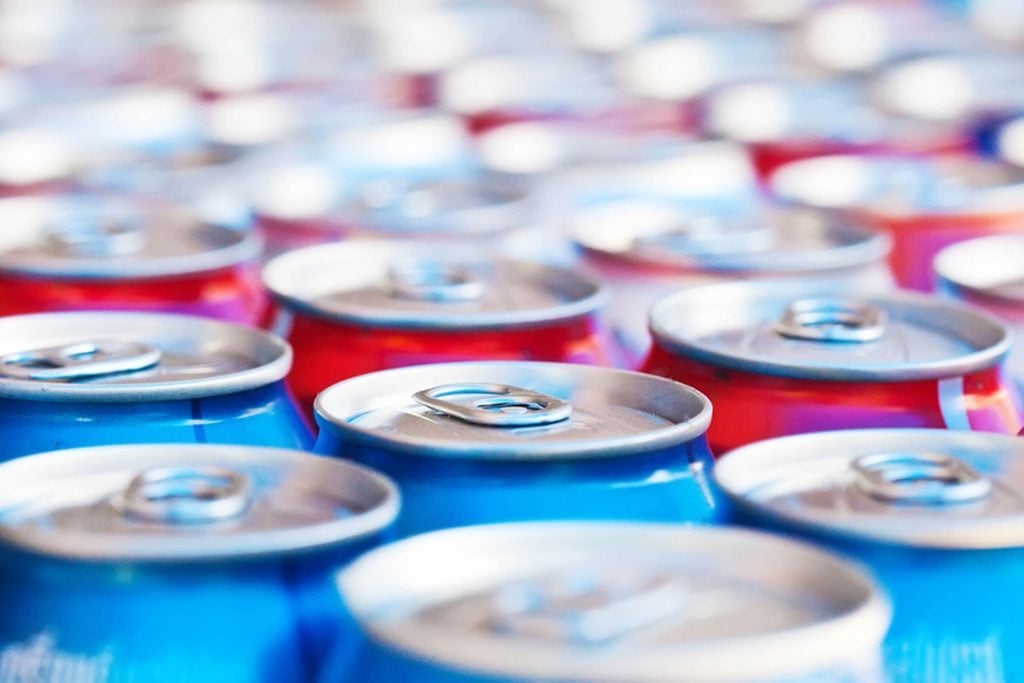Drinking Diet Soda Will Ruin Your Metabolism—and Could Make You Gain Weight
Updated: Aug. 15, 2017
Yep—it’s definitely time to rethink that daily diet soda habit.

Diet soda once ruled the weight loss kingdom… but unfortunately, that time has swiftly passed. At this point, these sweet beverages should come with a warning label. Not only are they one of the worst drinks for diabetics, but diet sodas can also take a serious toll on your brain—and the health hazards don’t stop there.
A new study published in Current Biology may convince you to finally drop the pop. According to the researchers, there could be a “sweet spot” (haha) when it comes to those artificial sweeteners in diet soda.
For the experiment, Yale neuroscientist Dana Small designed five beverages, all of which were sweetened using the identical amount of sucralose, an artificial sweetener. Although each tasted about as sweet as a drink containing about 75 calories of sugar, Small varied the calories using a tasteless carbohydrate called maltodextrin. Each drink contained zero, 37.5, 75, 112.5, 150 calories.
Participants consumed each drink six times over a period of several weeks, twice in the lab and four times at home. Small then evaluated their brain scans to determine how each drink affected the brain’s reward mechanisms.
Logically, higher calorie counts should yield higher rewards in the brain. But contrary to expectations, the participants’ brains signaled the highest rewards for the 75-calorie drink—higher than the 0-calorie drink and the 150-calorie drink. What’s more, their metabolic responses to the high-calorie drink were lower than for the medium-calorie drink. What gives?
As it turns out, sweetness—not calories—determines the body’s response to food. When sweetness and calories are matched, as with the 75-calorie drink, the body’s reward mechanism and metabolic rate act normally. But the body becomes confused when it tries to digest something that has higher or lower calorie count relative to its sweetness.
“It’s like the system threw up its hands and didn’t know what to do,” Small told Vox.
With your metabolism thrown for a loop, it’s likely that the extra calories are stored in muscle, fat, or the liver—all of which is pretty bad news. (And if you want to lose weight, avoid this one food at all costs.)
Equally worrisome is that more and more companies are creating foods that contain blends of sweeteners and carbohydrates, Vox reports. That goes for diet sodas as well as sports drinks like Powerade, which, as Small notes in her paper, contains both sugars and artificial sweeteners.
Yep, you’ll definitely want to toss out those soda cans ASAP. Your body will thank you.